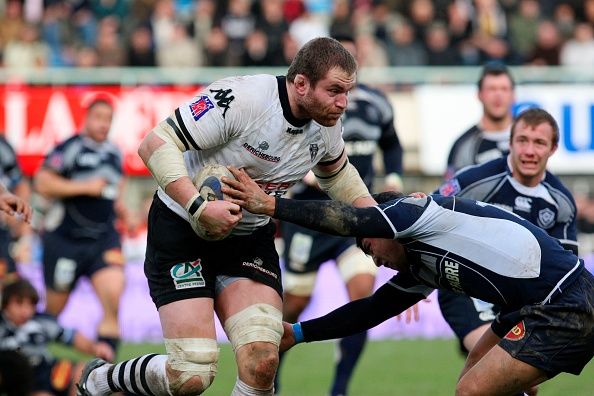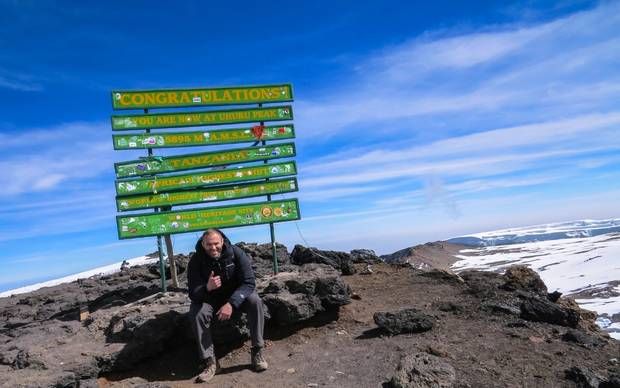

Share
13th December 2017
02:25pm GMT

 "We're expecting 30 knot winds in the exact direction we want - north-easterly/easterly winds - it's going to be a rapid start, it's going to be scary, it's going to be overwhelming, it's going to be exciting, and not having experienced that before makes the nerves kick in and rumble away."
Browne has good reason to be nervous. A description of the event on his website reads that 'more people have reached the summit of Mount Everest and have travelled into space than those that have successfully rowed across the Atlantic ocean'.
Earlier this year Browne's friend and mentor Gavan Hennigan set the Irish record for the race when he completed the gruelling trial in 49 days, 11 hours and 37 minutes, surpassing the previous mark of 118 days set by Limerick native Sean McGowan in 2010.
Browne is pitching himself somewhere in the 50-90 day range, weather permitting, and while he spent 16 years relying on 14 other people to help him reach the finish line in rugby, he now finds some solace in the isolation, some comfort in the discomfort.
"When you go through the suffering in running six marathons in six days like I did on the Marathon des Sables, you get this clarity from the freedom of the whole experience.
"When you get back to normal life it just seems easier and it seems slower and everything seems clearer. That for me is a huge reward and it's why I like to prepare as much as I can.
"The mental side of it for me is definitely the most important. Physically, I think it's not a hugely stressful endeavour when I talk about it from a cardiovascular perspective.
"The physical stress will just be discomfort, pains, sores, chronic injuries, tendons and hands being in the same position for an extended amount of time, but it's not huge physical cardiovascular stress.
"But at the same time, mentally there's a lot of stress from isolation, the unknown, scary experiences that could happen and probably will happen - boats overturned and things like that - so trying to be prepared for that mentally is something I try to focus on in my preparation."
"We're expecting 30 knot winds in the exact direction we want - north-easterly/easterly winds - it's going to be a rapid start, it's going to be scary, it's going to be overwhelming, it's going to be exciting, and not having experienced that before makes the nerves kick in and rumble away."
Browne has good reason to be nervous. A description of the event on his website reads that 'more people have reached the summit of Mount Everest and have travelled into space than those that have successfully rowed across the Atlantic ocean'.
Earlier this year Browne's friend and mentor Gavan Hennigan set the Irish record for the race when he completed the gruelling trial in 49 days, 11 hours and 37 minutes, surpassing the previous mark of 118 days set by Limerick native Sean McGowan in 2010.
Browne is pitching himself somewhere in the 50-90 day range, weather permitting, and while he spent 16 years relying on 14 other people to help him reach the finish line in rugby, he now finds some solace in the isolation, some comfort in the discomfort.
"When you go through the suffering in running six marathons in six days like I did on the Marathon des Sables, you get this clarity from the freedom of the whole experience.
"When you get back to normal life it just seems easier and it seems slower and everything seems clearer. That for me is a huge reward and it's why I like to prepare as much as I can.
"The mental side of it for me is definitely the most important. Physically, I think it's not a hugely stressful endeavour when I talk about it from a cardiovascular perspective.
"The physical stress will just be discomfort, pains, sores, chronic injuries, tendons and hands being in the same position for an extended amount of time, but it's not huge physical cardiovascular stress.
"But at the same time, mentally there's a lot of stress from isolation, the unknown, scary experiences that could happen and probably will happen - boats overturned and things like that - so trying to be prepared for that mentally is something I try to focus on in my preparation."
 Browne will row across the Atlantic in a hull made of marine grade fibreglass that measures just over seven metres long.
The boat has been designed exclusively for a solo rower and is fitted with two cabins on either end of the boat, which will store both his bed and the boat's electronics.
Part of Browne's nerves stem from what could go wrong out on the water, and he admits that there is a possibility that the boat may capsize, in which case, the craft will self-right immediately.
While it is a worry, and also a factor in his excitement, Browne has never really been one to share his stresses, he's a silent sufferer according to former Leinster teammate Kevin McLaughlin.
The ex-Blues captain spent two seasons alongside Browne at Belfield and revealed that the towering Galwegian was exceptional at rowing and bench pulls, but that physical advantages aside, he would rely heavily on mental processes to help him overcome and surmount challenges.
"He was one of those guys that would just get on with his work, you wouldn't actually hear much from him," said McLaughlin.
"He would never complain, never give out, he'd just get on with it. He was just one of these guys that would suffer in silence, which is what he'll need to do when he gets out on the Atlantic because no one is going to be there to listen to him.
"He used to talk about his bucket list all the time though, and a few of us would be listening to him going 'oh jeez, is this guy serious or is he joking?'
"Then he went and climbed Mount Kilimanjaro and we thought 'yeah he's serious'.
"A lot of it with him is understanding the mental aspects, understanding what the challenge is, accepting the challenge and then just going for it.
"He used to talk about that a lot, even when he would train in France in the heat during the summer, he would talk a lot about how to just accept the challenge, and he still applies that philosophy now to this day."
A lot of Browne's challenges are solo endeavours. Whether it's running across the Sahara Desert for an entire week in the Marathon des Sables, or whether it's riding on top of an Iron Ore train in the Northwest African country of Mauritania, a lot of Browne's ventures are uniquely individual.
However, while he finds real joy and exultation through isolated exertion, at the core of his activities, he wants to use his challenges as a means for helping others.
As part of his Atlantic Challenge, Browne has been raising funds for Médecins Sans Frontières (a charity that provides emergency medical aid at the frontlines of conflicts, natural disasters and humanitarian crises around the world), Madra (a volunteer-run organisation dedicated to finding new homes for unwanted, neglected, abused and abandoned dogs) and Strong Roots Foundation (a school for kids aged four to nine in Kigali, Rwanda).
Browne has raised €65,000 for the three charities thus far and hopes that that figure will continue to rise as he makes his way across the Atlantic.
A solo row to make life easier for others. An altrusitic journey from Galway to Antigua and beyond.
Browne will row across the Atlantic in a hull made of marine grade fibreglass that measures just over seven metres long.
The boat has been designed exclusively for a solo rower and is fitted with two cabins on either end of the boat, which will store both his bed and the boat's electronics.
Part of Browne's nerves stem from what could go wrong out on the water, and he admits that there is a possibility that the boat may capsize, in which case, the craft will self-right immediately.
While it is a worry, and also a factor in his excitement, Browne has never really been one to share his stresses, he's a silent sufferer according to former Leinster teammate Kevin McLaughlin.
The ex-Blues captain spent two seasons alongside Browne at Belfield and revealed that the towering Galwegian was exceptional at rowing and bench pulls, but that physical advantages aside, he would rely heavily on mental processes to help him overcome and surmount challenges.
"He was one of those guys that would just get on with his work, you wouldn't actually hear much from him," said McLaughlin.
"He would never complain, never give out, he'd just get on with it. He was just one of these guys that would suffer in silence, which is what he'll need to do when he gets out on the Atlantic because no one is going to be there to listen to him.
"He used to talk about his bucket list all the time though, and a few of us would be listening to him going 'oh jeez, is this guy serious or is he joking?'
"Then he went and climbed Mount Kilimanjaro and we thought 'yeah he's serious'.
"A lot of it with him is understanding the mental aspects, understanding what the challenge is, accepting the challenge and then just going for it.
"He used to talk about that a lot, even when he would train in France in the heat during the summer, he would talk a lot about how to just accept the challenge, and he still applies that philosophy now to this day."
A lot of Browne's challenges are solo endeavours. Whether it's running across the Sahara Desert for an entire week in the Marathon des Sables, or whether it's riding on top of an Iron Ore train in the Northwest African country of Mauritania, a lot of Browne's ventures are uniquely individual.
However, while he finds real joy and exultation through isolated exertion, at the core of his activities, he wants to use his challenges as a means for helping others.
As part of his Atlantic Challenge, Browne has been raising funds for Médecins Sans Frontières (a charity that provides emergency medical aid at the frontlines of conflicts, natural disasters and humanitarian crises around the world), Madra (a volunteer-run organisation dedicated to finding new homes for unwanted, neglected, abused and abandoned dogs) and Strong Roots Foundation (a school for kids aged four to nine in Kigali, Rwanda).
Browne has raised €65,000 for the three charities thus far and hopes that that figure will continue to rise as he makes his way across the Atlantic.
A solo row to make life easier for others. An altrusitic journey from Galway to Antigua and beyond.Explore more on these topics:

World of Sports - SportsJOE.ie | SportsJOE
world of sport